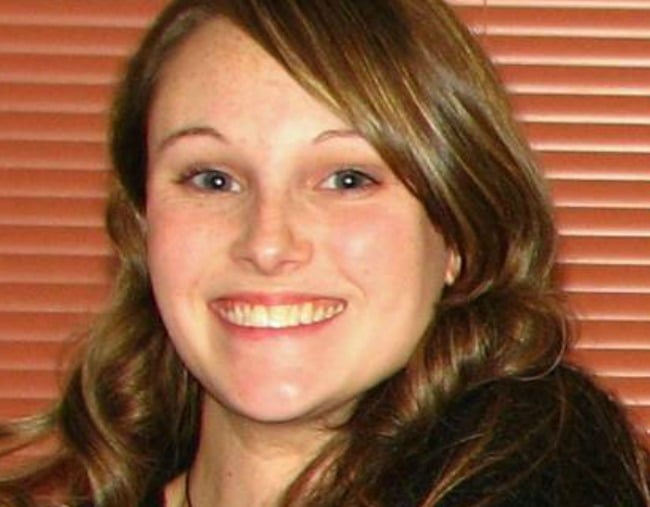Ten years after the murder of Sophie Elliot, her family are still enduring unimaginable pain.
Their lives have never, and will never, be the same.
Sophie, 22, was killed by her ex-boyfriend, Clayton Weatherston, who stabbed her 216 times in her own bedroom.
On January 9, 2008, the university graduate was in her bedroom at her family’s Dunedin home, packing for her new job with the New Zealand treasury, which she was starting the next day.
Weatherson arrived unannounced at the house, claiming he had a farewell present for her.
LISTEN: How they caught Daniel Morcombe’s killer. Post continues after audio…
The couple’s relationship had ended six months earlier. Weatherston was an economics tutor at the University of Otago, and Sophie had been one of his students.
A short time later Sophie’s mother, Lesley, heard her daughter screaming. She rushed to her bedroom to witness Weatherston killing Sophie in a violent stabbing frenzy.
According to the autopsy report, Weatherston continued to stab Sophie even after she was dead.
In court Weatherson used the provocation defense, telling the jury that Sophie had mistreated him and attacked him with scissors as she packed.
The jury found him guilty of Sophie’s murder and he was given an 18-year non-parole life sentence – which pales in comparison to the life sentence he handed to the Elliots.

